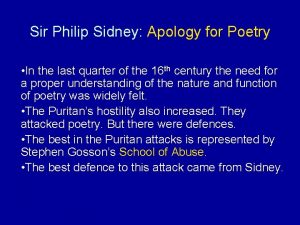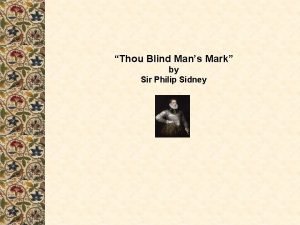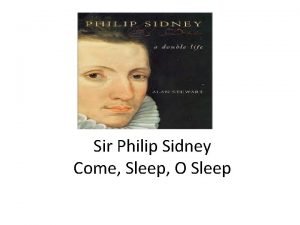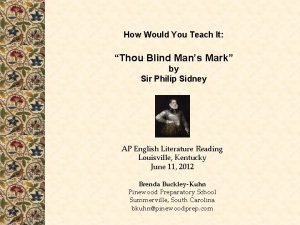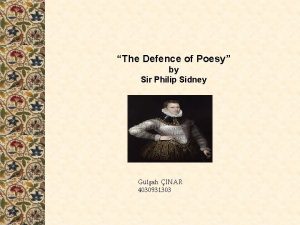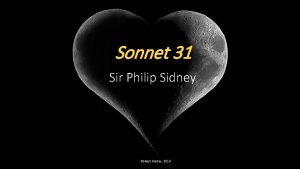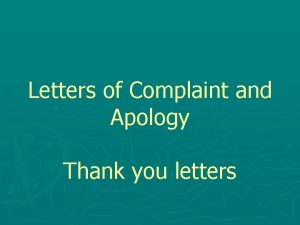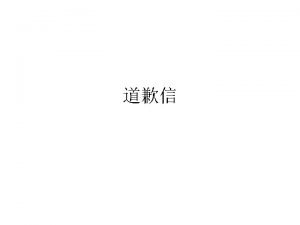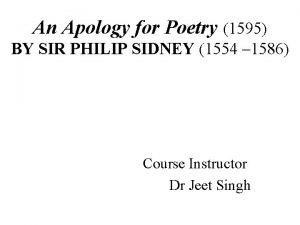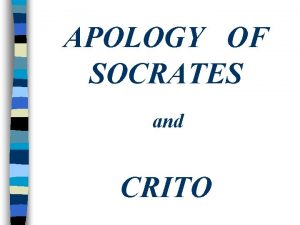Sir Philip Sidney Apology for Poetry In the








- Slides: 8

Sir Philip Sidney: Apology for Poetry • In the last quarter of the 16 th century the need for a proper understanding of the nature and function of poetry was widely felt. • The Puritan’s hostility also increased. They attacked poetry. But there were defences. • The best in the Puritan attacks is represented by Stephen Gosson’s School of Abuse. • The best defence to this attack came from Sidney.

Sir Philip Sidney: Apology for Poetry Why was Sidney provoked to write his Apology? Gosson’s attack appeared in 1579 dedicated to Sidney. The dedication of his work reads like this: “To the right noble Gentleman, Master Philip Sidney, Esquire. ” Indeed, Sidney was largely provoked by Gosson’s dedication. Thus, he wrote his Apology. It appeared in 1585, but was known in manuscript from before this date.

Attack and Defence Gosson Sidney 1. Poetry is mere, “rhyming 1. Rhyme is not the and versifying essence of poetry, but it is desirable because: a. it is a polish to speech. b. it regulates verbal harmony c. it adds the quality of music. d. it is an aid to memory. 2. Poetry is useless and so it 2. Poetry leads to virtuous is a waste of time. actions.

Attack and Defence 3. Poetry is the “mother of all lies. ” 3. The poet “affirms nothing, therefore, he never lieth, ” for to lie is to affirm what is not true. 4. Poetry has a corrupting influence. It makes men effeminate. 4. The fault lies not with poetry, but with the abuse of poetry. Poetry was always used to move men to heroic action.

Attack and Defence 5. Plato banished poets from his ideal state. 5. Plato himself was a poet. And his works were poetic. Plato was against the abuse of poetry.

Sidney’s Definition of Poetry “Poetry”, says Sidney, “is an art of imitation, for so Aristotle terms it, that is to say, a representing, counterfeiting, or figuring forth: to speak metaphorically, a speaking picture, with this end- to teach and delight. ”

The Function of Poetry The function of poetry according to Sidney is delightful instruction. Not instruction alone, or delight alone, but instruction made delightful. “The function of poetry is to teach and delight, and it teaches by moving men to goodness. ”

Poetry is Superior to Philosophy and History Philosophy teaches by precept alone. It is general, abstract, without clarity or beauty of style. History teaches by example alone. It shows the experience of past ages. It is tied to what actually happened and the particular. Poetry teaches by precept and example (dual function) binding the general with the particular.
